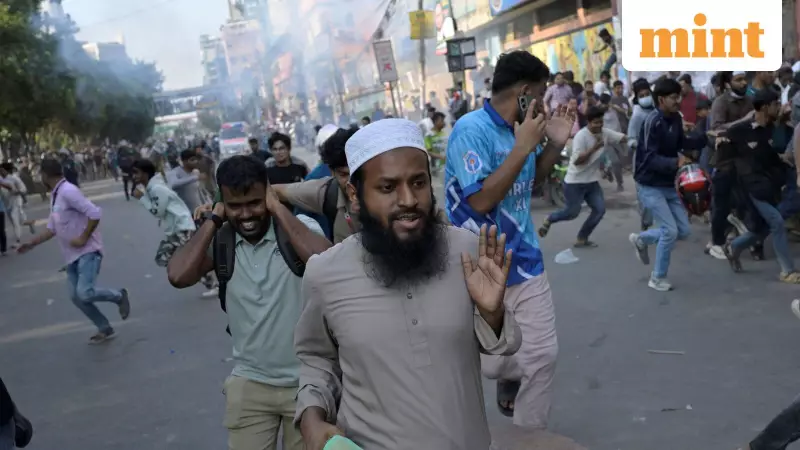
In a landmark ruling that has sent shockwaves through the region, a special tribunal in Dhaka has sentenced Bangladesh's ousted Prime Minister Sheikh Hasina to death. The verdict, delivered on Monday, also condemned former Home Minister Asaduzzaman Khan to capital punishment for their roles in the violent crackdown on student-led protests in 2024.
The Verdict and Its Basis
The three-member tribunal, led by Justice Golam Mortuza Mozumder, conducted a live-broadcast court session where the sentences were announced. The case centered on accusations that Sheikh Hasina and Asaduzzaman Khan ordered the killing of hundreds of people during the widespread student unrest in July and August of 2024. This event was a pivotal moment that led to the collapse of her 15-year administration on August 5, 2024.
The International Crimes Tribunal found the former Home Minister guilty for his direct involvement in authorizing the use of deadly force against the demonstrators. The exact number of casualties remains a point of international debate. While the current interim government's Health Advisor reported over 800 deaths and about 14,000 injuries, a United Nations report from February indicated the death toll could have been as high as 1,400.
Sentences and International Ramifications
Significantly, both Sheikh Hasina and Asaduzzaman Khan were tried and sentenced in absentia, as they had fled to India the previous year. The prospect of their return to Bangladesh to face the sentence appears slim. India has not yet officially responded to extradition requests from Dhaka, leaving a major diplomatic question unresolved.
A third accused, former police chief Chowdhury Abdullah Al-Mamun, received a different fate. After turning state's witness and pleading guilty, he was sentenced to five years in prison. He was physically present in the courtroom to hear his judgment.
Hasina's Defiant Reaction
Following the court's decision, Sheikh Hasina issued a strong statement denouncing the ruling. She labeled the verdict as "biased and politically motivated" and firmly rejected the charges against her. She argued that she and Khan had "acted in good faith and were trying to minimize the loss of life" during the chaotic uprising.
"We lost control of the situation, but to characterize what happened as a premeditated assault on citizens is simply to misread the facts," she stated. Expressing sorrow for the lives lost, she nonetheless maintained her innocence, asserting, "But neither I nor other political leaders ordered the killing of protesters."
The death sentences mark a dramatic new chapter in Bangladesh's ongoing political instability, with the world now watching to see how India and other nations will react to this decisive judicial action.






